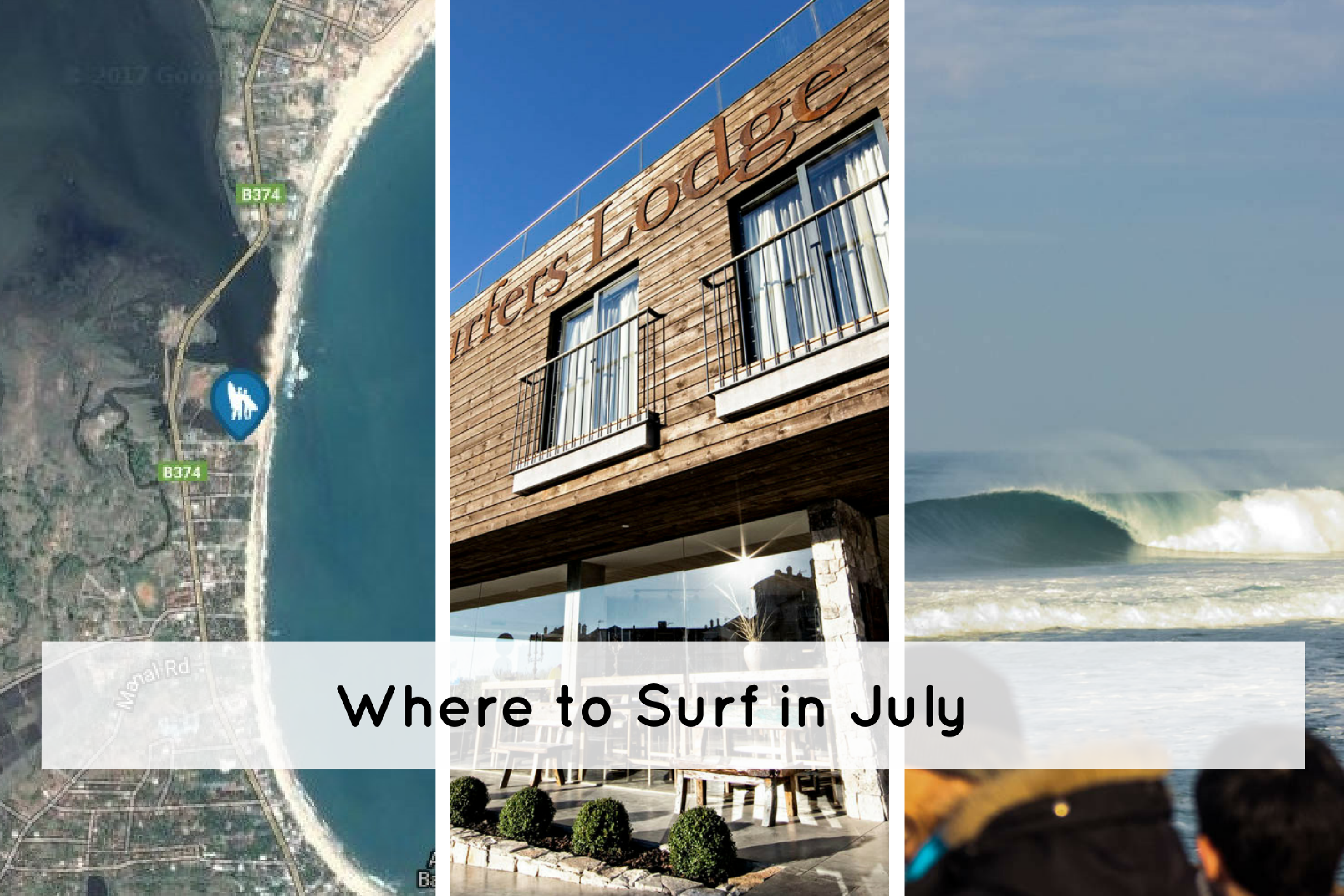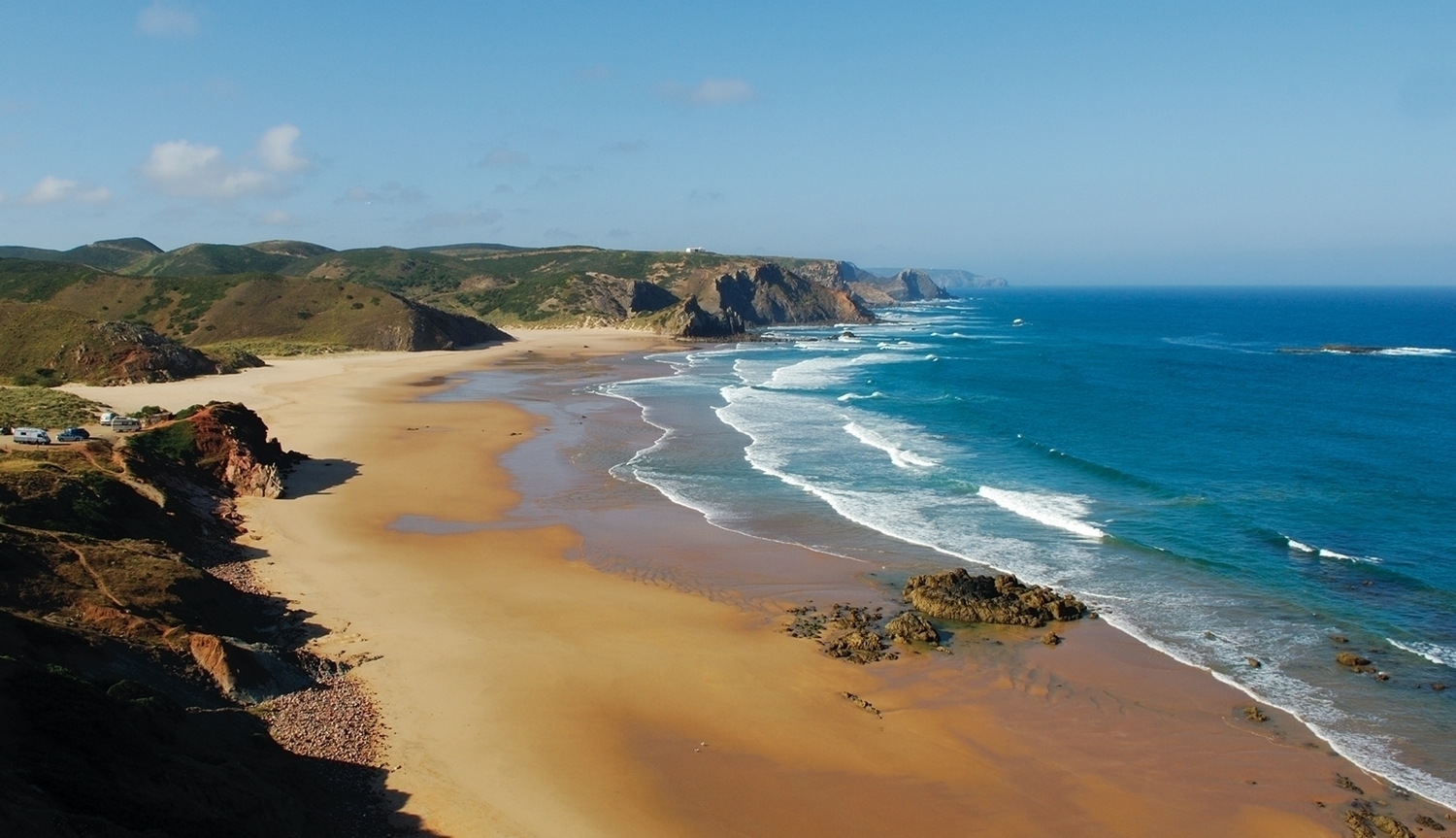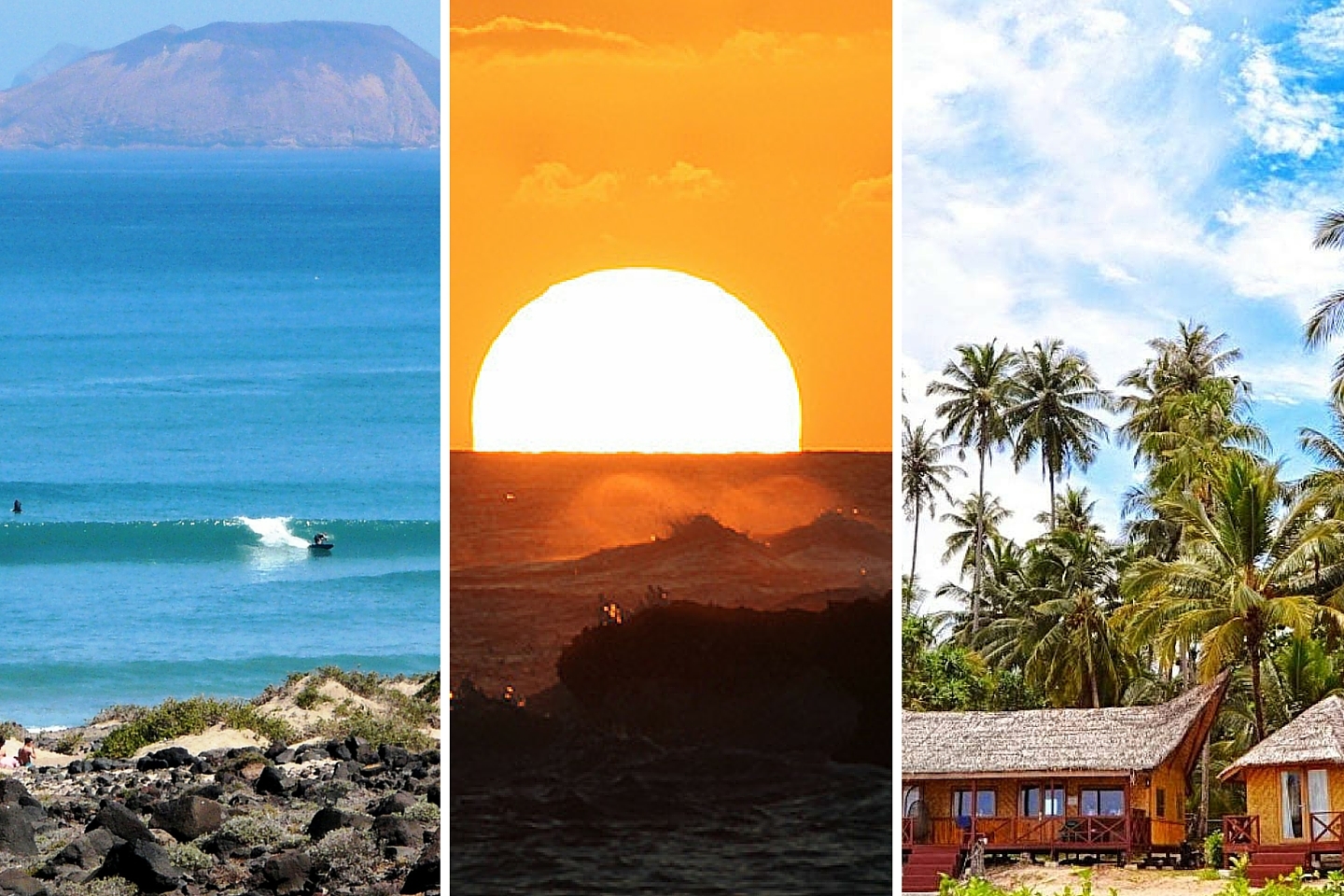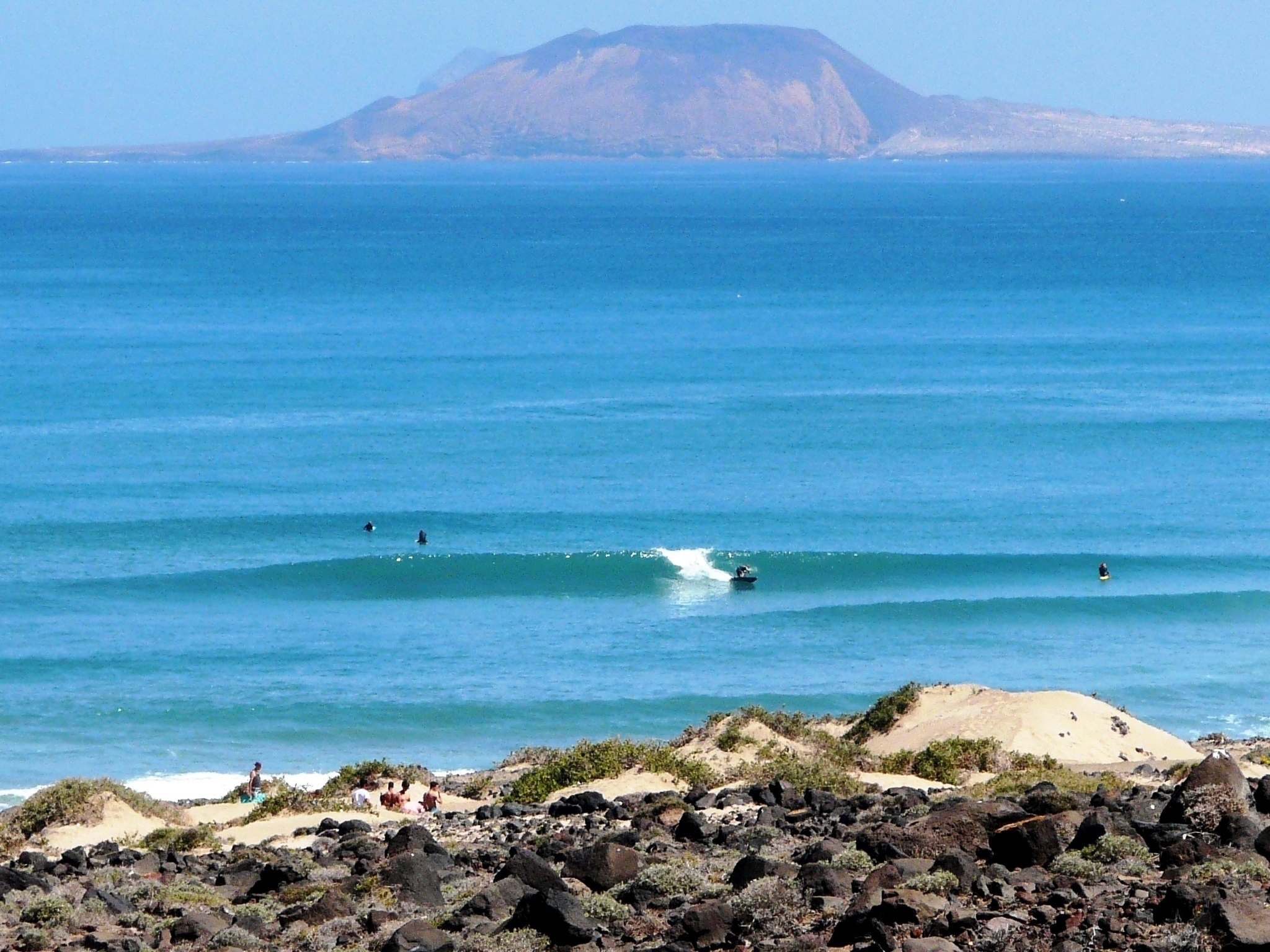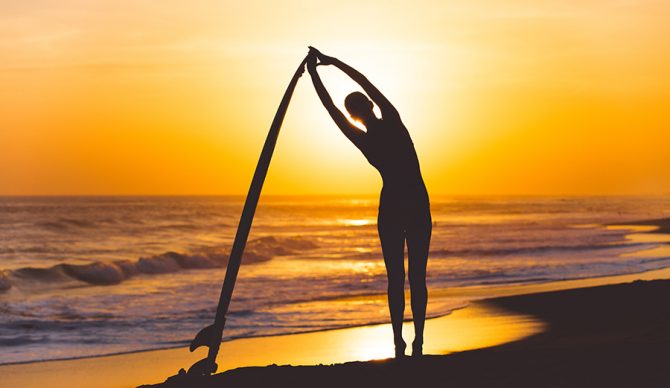Ronan Price headed to Portugal on a Surf holiday to explore a different side of the beach scene, and found himself at the start of an obsession with all things surf
My forehead bleeds gently, my shins throb with dull pain but, oh, my arms. They ache as if they've carried the weight of the world. Yet the exhilarating rush of adrenaline from catching my first wave overrides everything.
We've come to a Portuguese seaside town called Ericeira, about 45 minutes outside Lisbon. The name may mean nothing to you; it didn't to me. But to the worldwide community of surfers it's near-sacred, with one of the best collections of wave beaches anywhere.
Crucially from the holidaymaker's point of view, though, several sheltered spots around Ericeira are ideal for beginners. Even in water a few feet deep with only a light swell rolling off the Atlantic, you can acquire a taste for the buzz of riding the ocean waves.
The town itself is typically Portuguese, with clusters of white-walled homes spilling down the hills to cliffs that hug endless stretches of pristine sandy beaches. Not yet overrun by commercialism, despite three decades as a surfing mecca, Ericeira retains the air of a sleepy village.
Sure, the old town conceals late-night bars and clubs among its narrow, sloping streets. But sipping coffee in the peaceful main square within earshot of the ocean is a world away from the typical holiday resort.
Our introduction to surfing begins with a morning session at the Na Onda Surf School on Foz do Lizandro beach, on the edge of Ericeira. That's right, you learn to surf on dry land. Foz occupies a triangular expanse of white sand framed by cliffs, the lapping waters of the Atlantic and a boardwalk dotted with bars and restaurants.
Instructor Alex is the archetypal surf dude: tall, with sun-bleached
hair and rugged good looks. Like all the teachers, when he's not
coaching newcomers to Na Onda, he helps out at the owner's café on the boardwalk.
We climb into our hired wetsuits, a slight look of panic crossing some faces as they realise the snugly-fitting rubber has had several recent wearers. There on the sand we learn the technique of springing like a cat from prone to crouching on the surfboard in one smooth movement.
Or, in my case, an unsteady, graceless lunge.
Make no mistake: it's not easy, this surfing lark. For an out-of-condition journalist, limbs palsied by years of nothing more strenuous than pounding a keyboard, I'll admit that it was a struggle at first. Fitness helps but, trust me, it gets easier with practice.
The first obstacle entails struggling into the sea with your seven-foot fibre-glass eel, which is as likely as not to batter you about the head and legs in the face of the surprising strength of the waves. Once you've mastered the basics, though, it's one small step to total addiction and the drive to get back on that board time and time again in search of the perfect wave.
Swim against the tide out past the breakers to sit bobbing watchfully in the calm. Then paddle forcefully as the next big wave approaches, before leaping to your feet as the powerful surge of Mother Earth propels you back to shore. Shortlived and precarious it may be, but you never forget riding your first wave. Growing confidence may lead you to think you've cracked it. But as often as not, the cruel sea dumps you into the spin cycle of a washing machine on the very next attempt. Nonetheless, after a few hours in the water we're exhausted but hooked.
Judging by the broad spread of surfers carving the waters, Foz do Lizandro is an ideal starter beach for all ages. Even children as young as six can be catered for with lessons nearby. As your own prowess and foolhardiness builds, however, you may want to tackle Ericeira's more challenging surf spots, right up to Ribeira d'Ilhas, a Blue Flag beach four kilometres north of the town that's a regular on the world championship circuit.
As the afternoon sun cooled, we headed back to our accommodation a few minutes' walk from the town centre. The Eco Lodges resemble outtakes from an Alpine skiing village, six wooden-framed chalets grouped picturesquely around a natural pool. Inside, they're fully self-catering, if a little spartan, with space for up to five guests.
The deep green hue of the freshwater pool didn't bother some among our group half as much as the news that it's also home to several frogs and assorted fish. But a refreshing dip, followed by a short doze in the hammocks on the verandahs, overcame any misgivings, while setting us all up for the evening.
Most of Portugal never followed the rest of Europe in jacking up prices, even at the height of the boom, so recessionistas will be pleased to note that towns such as Ericeira host many bars and restaurants where a bottle of the excellent local beer costs €1 and a two-course meal can come in at under a tenner apiece. Many of the family-run restaurants offer similar simple-but-tasty fare, majoring on seafood. We were particularly impressed by Tik Tak, just off the main square. Though more expensive than some others, the bustling trade on the night we visited spoke volumes about the excellence of its grilled seafood and meat.
Next morning, nursing what might euphemistically be called a heavy head, we gathered expectantly around instructor Alex at Foz do Lizandro. Like a clairvoyant reading tea leaves, he gazed out to sea and spoke mystically about the frequency and height of the swell.
Translation: no waves.
We could see for ourselves as the tranquil silver water stroked the sand that no breakers would be ridden in anger today. Instead, we caught a glimpse into the hidden subculture of surfing with a visit to one of the two surfboard factories around Ericeira. Factory is perhaps too coarse a word to describe these workshops.
Craftsmen, known as shapers, pare the raw blocks of styrofoam to the exact specifications of the pro surfers. Some virtuoso shapers have attained celebrity status, travelling from country to country on the surf circuit plying their trade.
After the board has been shaped, a finisher applies several layers of fibre-glass resin for strength. Result: a custom-made piece of art costing hundreds of euro, yet one that may last only a few hours in the thrashing water beneath a pro surfer.
Back at the Eco Lodges, we warmed up for another evening's merriment with a few games of pool in the huge lounge beneath the chalets. On a big-screen TV, a DVD showcased the hardcore surfers who chase monstrous waves in helicopters off Hawaii then drop in for a frankly terrifying ride.
Suddenly, our adventures in one-metre surf seemed tame.
It didn't stop us spending the rest of our time at Foz trying to catch that elusive Big One. No one who tries surfing comes away unmoved by the experience. The instructors tell stories of those who abandon everything -- husbands, wives, jobs, houses -- to follow the lifestyle once bitten by the bug. You owe it to yourself to give it a go.
GETTING THERE
We travelled to Ericeira with Surfholidays.com (01 482 2828; www.surfholidays.com) which organises similar holidays in several locations around Europe. One week's accommodation at the Eco Lodges starts at €250 per person including surf lessons. Other accommodation is available. You need to arrange your own flights and transfers (Aer Lingus (0818 365 000; www.aerlingus.com) flies Dublin to Lisbon six days a week and Cork to Lisbon three days a week.
WHEN TO GO
Temperatures are pleasant in Portugal for most of the year but the season runs from March to September.
BEYOND THE SURF: FOUR GREAT THINGS TO DO
While you can admire the dedication of those who come to this corner of Portugal purely to surf, the region can offer more to visitors than just the rush of white-capped breakers.
1)Lisbon will probably be your point of entry to Portugal and the capital has developed into one of Europe's brightest stars. Even if you tarry here for only a day or two on your way to Ericeira, you'll be stirred by the architecture, the food, the music, the football, the people...
2) The town of Sintra has been designated a World Heritage Site by Unesco for its magnificent collection of 19th-century architecture set high on the hills near Ericeira. The presence of many palaces and castles and a beautiful national park makes sense when you discover Sintra used to be the summer residence for the kings of Portugal.
3) A visit to Estoril, west of Lisbon, was the inspiration for Ian Fleming's first Bond novel Casino Royale. The casino still stands amid the town's faded glamour.
4) Still with Bond, remember when the suave spy rescued a beautiful woman from the churning surf on a gorgeous stretch of sand? That's from On Her Majesty's Secret Service at Guincho Beach, near Estoril.




 Francesca Bingley
Francesca Bingley

